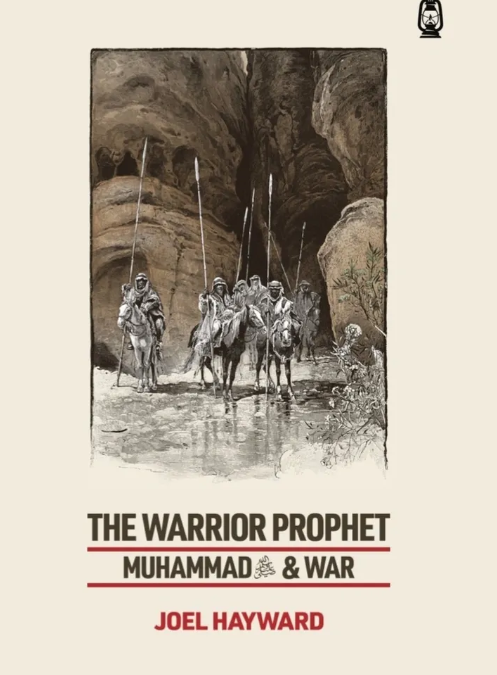
The Warrior Prophet: Muhammad and War
Muhammad was the founder of the Islam religion and was a prophet. Muhammad’s (570-632)’s words and deeds have been chronicled and relayed in the centuries after his passing. Many biographies have been written mentioning Muhammad’s skills in battle, The Warrior Prophet: Muhammad and War attempts to set the record straight. Muhammad launched offensive campaigns as well as wars of self-defense (jihad). The issue with Muhammad’s war record, according to author Joel Hayward, is how previous authors downplayed any aggressive actions (i.e. looting, executions) taken by Muhammad and his warriors.
Muhammad stressed a code to live by, this would be referred to as the “Sunnah.” He expected his followers to adhere to this code, even under the fog of war. The occurrence of raiding during Muhammad’s life was an ordinary and accepted practice, a matter of manhood and honor often factoring into it. During his lifetime, Muhammad led twenty-seven raids and scores of military campaigns against rival tribes. These forays were not always successful, but some were and are noteworthy such as the Battle of the Trench (Medina, April 627). The decision to build trenches in Medina was strictly a defensive move that proved prescient against the Quraysh tribe.
Muhammad was tactically proficient but also knew how to motivate his people. He rewarded their faith with material goods to reaffirm their loyalty. The numbers of men involved could alternate between dozens and thousands, and the battles could be “pitched” or “encountered” Muhammad often guided others through fear. The culmination of Muhamad’s leadership would be the conquering of Mecca in January 630. Despite his death two years later, his legacy had already been etched in stone.
The Warrior Prophet approaches a much-debated topic and proceeds to break down in a cogent manner how Muhammad handled himself and his troops on the open battlefield. Author Joel Hayward writes of his subject in a convincing and thought-provoking manner. Hayward contributes a well-researched and annotated study into the controversial topic but doesn’t mince words in his assessments. Hayward’s work doesn’t narrowly focus on wins and losses for Muhammad and his disciples but also delves into the guiding philosophies that Islam teaches. Hayward’s book will open the eyes of history devotees as well as those who are well-versed in the life of the esteemed prophet/leader. The Warrior Prophet succeeds in being a memoir combined with military history.

kamagra pas de livraison samedi soir
acheter kamagra en france pharmacie
generique kamagra buy online en ligne a bon compte
ordering enclomiphene american pharmacy
online order enclomiphene price by pharmacy
enclomiphene online no perscription overnight
buying androxal generic united states
get androxal cheap uk buy purchase
cheapest buy androxal generic free shipping
ordering flexeril cyclobenzaprine australia buy online
order flexeril cyclobenzaprine usa price
purchase flexeril cyclobenzaprine france where to buy
ordering dutasteride usa price
purchase low price dutasteride
buying dutasteride spain over the counter
best prices on generic gabapentin
buy cheap gabapentin australia generic online
ordering gabapentin generic information
buying fildena cheap no prescription
buy fildena cheap buy online no prescription
buy fildena cod delivery
itraconazole australia no prescription
how to buy itraconazole generic for sale
ordering itraconazole buy in london
Buy generic staxyn no perscription
staxyn generique staxyn
cheapest buy staxyn cost of tablet
discount avodart cheap info
buy cheap avodart generic in united states
buying avodart price on prescription
buy cheap rifaximin
purchase rifaximin united kingdom
online order rifaximin canada on sale
buy xifaxan price canada
Order xifaxan without a perscription from us
buying xifaxan buy mastercard
kamagra doručit do velké británie krmeno ex přes noc
levné kamagra online
objednat kamagra online kanada